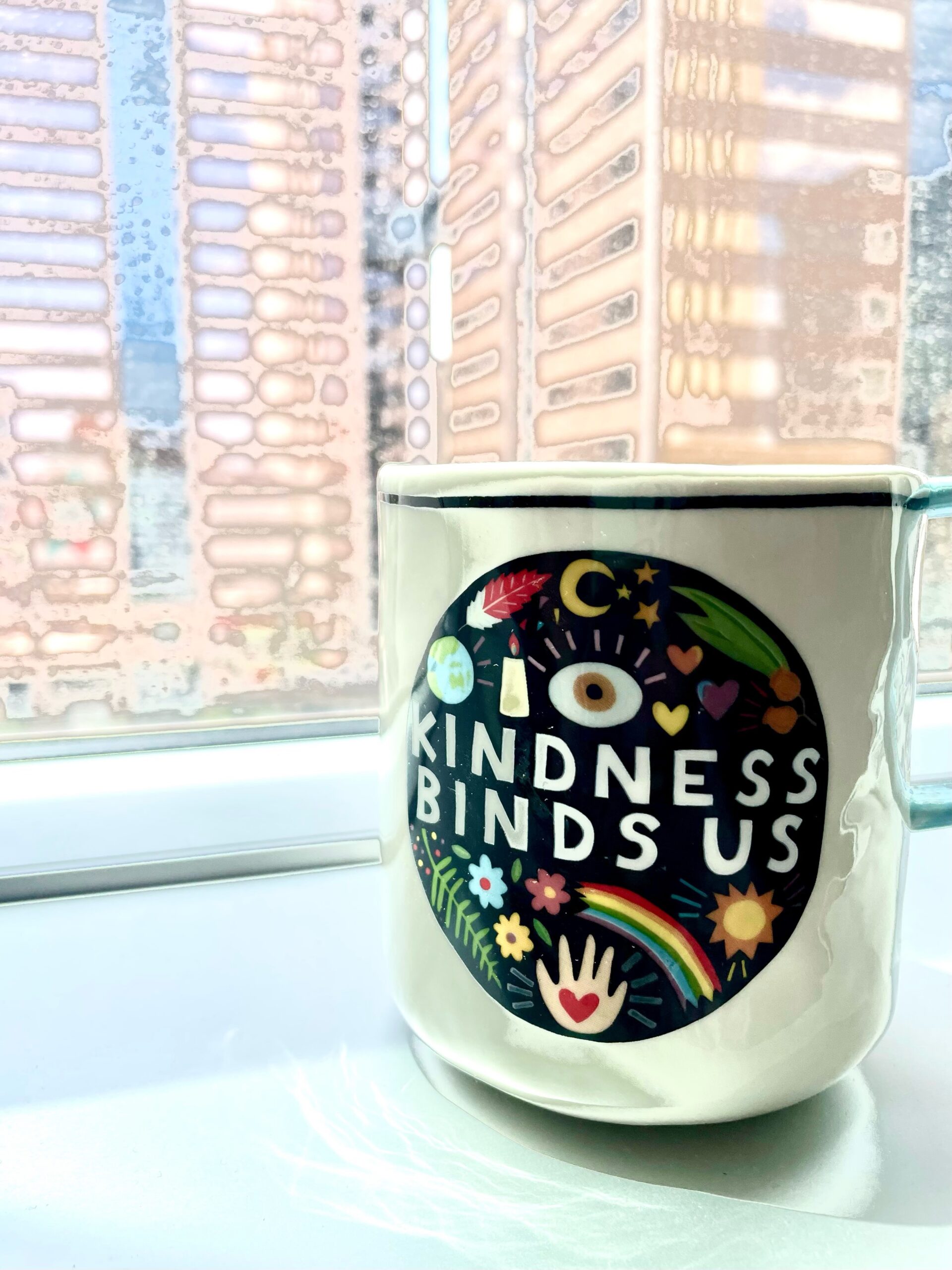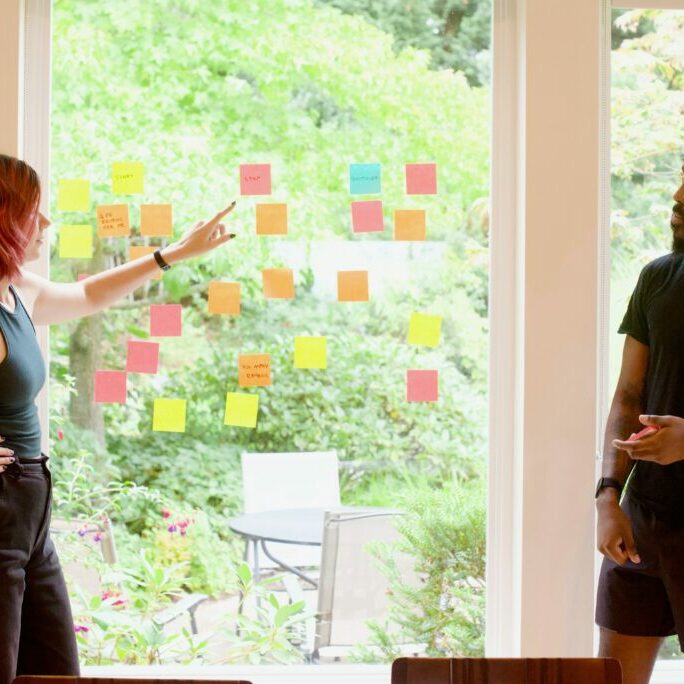
Here’s why.
During the year 2020, I was journaling a lot to use it as a way to process my complex emotions about…*flaps hands* everything. I wrote about how I used my journal entries to make some tough decisions here. TLDR: I was not happy. My job was a big reason I wasn’t happy. I quit my job.
Since I published that piece, a few people, mothers in particular, have been reaching out to me. One thing I get told consistently is…I thought I was the only one who felt like I was at max capacity, and no one cared.
That theme of despair and invisibility had a significant and increasingly dark presence in my journal entries from April through September of 2020.
The language I used referred to myself – a human born from another human on planet earth – as a machine. A machine made of complex systems that were running noon and night, expected to produce not only consistent results but expected to grow in bandwidth on a dime no matter the input and no matter the constraints. Oh, and to always project warmth, friendliness, and a happy-to-be-here attitude. The big mood at that time was a little …ehh there’s no one to take this, just throw it into the Melati machine, something will get done, what’s the harm? (“What’s the harm” was never asked in earnest because once I started articulating the harm, I mostly got interrupted with something like, “Oh well, yeah that’s too bad, just do your best I’m sure you’ll figure out a way, you always do. Anyway, I gotta run, k, let me know about that thing, ok? Thanks, bye.”)
My writing in those pieces sounds like I’m doing tech/capabilities map assessment of myself. Stuff like “I can run two processes concurrently by incorporating something from the kid’s homeschool curriculum with grocery shopping, I’ll have bought (and used) an hour. Call it Consumer Education!”
In late September of 2020 one of my journal entries was simply this:
I am not a machine. I am a human. No. I am a garden. Capable of yielding so much if tended to. I need different things on different days, a little more water today, a little less sun tomorrow. I have fruitful seasons and fallow ones. Why is this considered something to hide, something to be ashamed of?
In the spirit of transparency, I don’t know if I pulled that out of the ether or simply regurgitated something I had seen that day, I wasn’t sleeping a whole lot during that time. However the way I arrived at those words, that realization that I am a human who needs kindness changed my whole trajectory.
What a lot of us were feeling at that time was this sense of not being treated kindly by the people that we had accountability for and to. That they expected more and more out of us no matter what was happening. Kids needed more from us while work was double, tripling in volume and urgency, and, oh yeah, the world and the rules were constantly changing, and priorities were mostly around surviving to fight another day (while making it seem fun and light and breezy because no one likes a grumpy co-worker, roommate, spouse, parent, friend, teacher.)
Understanding constraints is the highest form of showing kindness and respect, followed quickly by a listening ear and an offer to help. In our grow-or-die world, it seems the first thing to go is kindness. Respect falls shortly after. Sometimes there’s a greater good, like when you don’t respect the old ways of doing things because they no longer serve a purpose or are harmful or unjust, DISRUPT.
But radical kindness, the way we practice it, is rooted in acknowledging constraints. In a way, constraints are boundaries. When we speak about boundaries, we recognize how people like to be treated. When people are treated with radical kindness, the yield is a quiet love. A soft re-commitment to reciprocate in kind. And love, at home or in the office or in your schools and communities, looks a lot like creativity and joy.
Let me explain in a different way.
You have a new car. You spent months researching it, doing model and price comparisons, noodling out mileage and maintenance costs. You figure if you drive her carefully and keep her running right by changing oils and belts and tires, you can get 10 years out of her! More if the ding dang city starts fixing those potholes. Treat that car right! With respect! Don’t take that curve so fast! You’ll wear down the ball bearings!
Have you ever thought about it in the same way for a person you care about or work with? Probably not because that’s creepy, people aren’t cars, and also, I’m not sure if either cars or people have ball bearings.
But treating a person with radical kindness means not testing their limits.
You take the time to understand the constraints under which that person operates (car need oil), you acknowledge them (car need clean oil now), and then you plan for them (car need clean oil every 3 months)…that is treating someone with radical kindness. Instead of oil, think of it as Time with Family or Volunteering.
At MacroScope Studios, we design our sessions to incorporate the principles of radical kindness. It’s woven into how we listen to our clients from the very first introduction meeting through to the first time they walk into our studio. It’s understanding preferences and cultivating conversations that are psychologically safe. It’s in how we facilitate, from advising on purpose and participants to tuning into and navigating through the emotional ocean in the room during the session. We even practice radical kindness in the collateral we create by doing the work to make it simple for others to understand.
People need all sorts of things, just like gardens do, just like machines do, just like systems.
If you ignore what people need, but still hold ever-growing expectations of them, not only is that unkind, it’s also just not a smart business decision. Failure to thrive is expensive. Replacing anything or anyone is expensive. Just like you wouldn’t expect a car to keep driving if you never gave it oil, or a garden to flourish if you crowded all the seedlings, people need to be acknowledged to thrive. And not like in a great-job-pat-on-the-back way. Acknowledge what is important to them. What they need. If they need help.
How do you do that?
Ask them, yes absolutely. Hear them with earnest when they trust you with an answer. But also, hear what they are saying when you DON’T ask them questions. Communicating needs or constraints sounds a lot like complaining sometimes, so train your ear to distinguish between the two. Sorry – I have no shortcuts to share. This just takes time.
Tend to your teams and other important human connections at least as good as you would a new car. Ironic that I’m saying this after I just shared my angst about being treated like a machine, but sometimes we expect too much from each other without issuing basic kindness. The way you’d hear a rattle coming from your engine and take it to the dealer, listen for the rattles in your teams and relationships. Radical Kindness means not ignoring the rattle, but listening to it, and tending to the need behind the rattle.
(Also, probably shouldn’t ever ignore a rattle when you’re hiking in the desert.)







